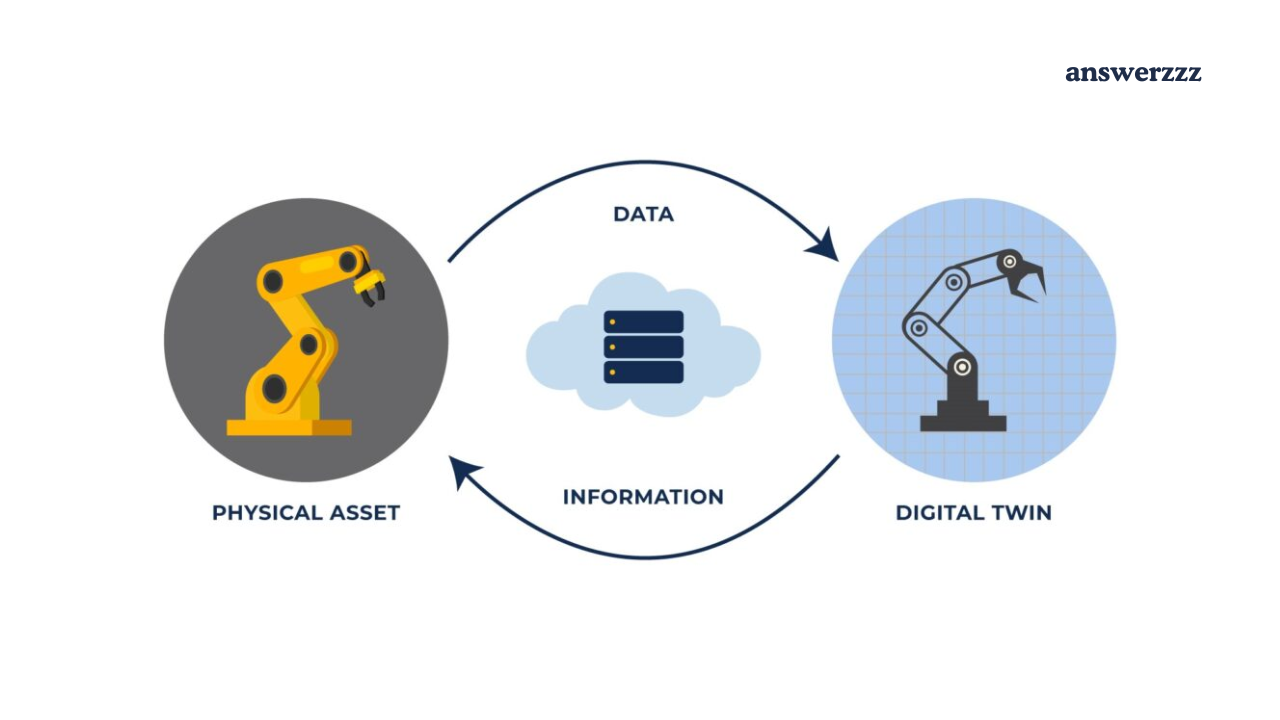Quantum computing is emerging as one of the most groundbreaking technologies of the 21st century. With the potential to revolutionize industries ranging from healthcare to finance and cybersecurity, quantum computers promise to solve problems that are currently intractable for classical computers. As this field accelerates, scientists and tech companies are racing to unlock the full potential of quantum computing, which could lead to a paradigm shift in how we process and utilize data.
In this article, we will explore what quantum computing is, how it differs from classical computing, the current state of the technology, and, most importantly, what the future holds for this fascinating and transformative field.

What Is Quantum Computing?
Quantum computing is a type of computation that leverages the principles of quantum mechanics, a branch of physics that deals with the behaviour of subatomic particles. Unlike classical computers, which process information in binary bits (0s and 1s), quantum computers use quantum bits or qubits. A qubit can exist simultaneously as a 0, a 1, or any quantum superposition of these states. This enables quantum computers to perform multiple calculations at once, significantly increasing their computational power.
Key Concepts in Quantum Computing
- Superposition: In classical computing, a bit can either be a 0 or a 1. However, a qubit can exist in a superposition of both states at the same time, enabling quantum computers to process multiple possibilities simultaneously.
- Entanglement: Entanglement is a phenomenon in which two qubits become correlated in such a way that the state of one qubit instantly influences the state of the other, no matter how far apart they are. This property allows quantum computers to perform complex operations with fewer computational steps.
- Quantum Interference: Quantum interference allows quantum algorithms to amplify the correct answers and cancel out incorrect ones, dramatically speeding up the solution to certain problems.
Quantum Computing vs. Classical Computing
Classical computers operate on bits, where each bit can either be a 0 or a 1. Operations are performed sequentially, meaning that as tasks grow more complex, the time required to solve them increases exponentially. For example, simulating the behaviour of a molecule, which involves numerous interacting particles, is beyond the reach of even the most advanced supercomputers due to the sheer number of calculations required.
The Rise of AI-Generated Content: Transforming the Digital Landscape
Quantum computers, on the other hand, are not bound by the binary limitations of classical bits. Through superposition, entanglement, and quantum interference, quantum computers can evaluate multiple outcomes simultaneously, making them exponentially more powerful for specific types of calculations. Quantum computers are particularly promising for solving problems in fields like cryptography, materials science, and artificial intelligence, where classical computers face significant bottlenecks.
Current Challenges in Quantum Computing
Despite its enormous potential, quantum computing faces several challenges. Quantum systems are highly sensitive to environmental noise, which can cause qubits to lose their quantum states — a phenomenon known as decoherence. Additionally, the process of error correction in quantum systems is far more complex than in classical computers. Building scalable and fault-tolerant quantum computers remains one of the biggest hurdles to bringing quantum computing into practical use.
Quantum Computing Applications: A Glimpse into the Future
The transformative potential of quantum computing spans across various industries. While the technology is still in its infancy, early applications are already hinting at a future where quantum computing could revolutionize the way we approach some of the world’s most complex problems.

1. Drug Discovery and Healthcare
In healthcare, quantum computing could lead to breakthroughs in drug discovery and personalized medicine. Classical computers struggle to simulate the behaviour of molecules, which limits their ability to predict how different compounds will interact with the human body. Quantum computers, however, can simulate molecular structures and their interactions at an atomic level, offering the possibility of discovering new drugs more quickly and with greater accuracy.
For example, pharmaceutical companies could use quantum computers to simulate how a drug interacts with proteins in the body, speeding up the drug development process by eliminating the need for costly and time-consuming laboratory experiments. Quantum simulations could also lead to the design of personalized medicines tailored to an individual’s genetic makeup, opening up new possibilities in the field of precision medicine.
2. Finance and Cryptography
The financial sector could be one of the biggest beneficiaries of quantum computing. Quantum algorithms have the potential to dramatically improve the efficiency of risk analysis, portfolio optimization, and fraud detection. Quantum computing could also enhance predictive analytics, helping financial institutions make better decisions based on vast amounts of data.
However, quantum computing also presents a significant threat to current cryptographic techniques. Many of the encryption methods used today, such as RSA and ECC, rely on the difficulty of factoring large numbers, a task that would take classical computers an impractical amount of time. Quantum computers, equipped with algorithms like Shor’s algorithm, could solve these problems in a fraction of the time, rendering current encryption methods obsolete.
To counter this threat, researchers are already working on quantum-safe encryption methods known as post-quantum cryptography. The race is on to develop secure encryption standards before quantum computers reach maturity.
3. Artificial Intelligence and Machine Learning
Quantum computing could accelerate advancements in artificial intelligence (AI) and machine learning by providing more powerful tools for training complex models. Classical computers require significant computational resources to process the vast amounts of data involved in AI tasks like image recognition, natural language processing, and predictive analytics. Quantum computers, with their ability to evaluate multiple possibilities simultaneously, could drastically reduce the time required for training AI models.
Quantum machine learning is a rapidly growing field that aims to develop algorithms capable of taking advantage of quantum computers’ unique properties. While the field is still in its early stages, researchers believe that quantum computing could unlock new levels of AI performance, enabling applications that were previously impossible due to computational constraints.
4. Climate Modeling and Environmental Science
Climate change is one of the most pressing challenges facing humanity, and addressing it requires an accurate understanding of complex, interconnected systems. Classical computers are limited in their ability to model these systems due to the sheer number of variables involved. Quantum computers, with their ability to process vast amounts of data simultaneously, could revolutionize climate modelling.
By simulating the interactions between molecules, particles, and energy systems, quantum computers could provide more accurate predictions of how different factors contribute to climate change. This could lead to better policies and solutions for mitigating the effects of global warming, as well as advancements in fields like renewable energy and materials science.
5. Supply Chain Optimization
Quantum computing could dramatically improve the efficiency of global supply chains by optimizing complex logistics problems. Classical computers struggle with certain types of optimization problems that involve large numbers of variables and constraints. Quantum computers, through their ability to evaluate multiple solutions simultaneously, could find optimal routes, schedules, and resource allocations in a fraction of the time.
This could have a profound impact on industries like manufacturing, transportation, and retail, where supply chain optimization is critical for reducing costs and improving efficiency. In a future where quantum computing is widely adopted, companies may be able to make real-time adjustments to their supply chains, leading to more resilient and responsive operations.
6. Materials Science and Chemistry
Quantum computers could unlock new possibilities in materials science by simulating the behaviour of atoms and molecules at the quantum level. This could lead to the development of new materials with unprecedented properties, such as superconductors that operate at room temperature or materials that are lighter, stronger, and more durable.
For example, quantum simulations could help scientists design new catalysts for chemical reactions, leading to more efficient processes in industries like energy, manufacturing, and agriculture. Quantum computing could also play a key role in developing sustainable technologies, such as carbon capture materials and renewable energy sources.
The Road Ahead: Challenges and Opportunities
While the potential of quantum computing is immense, the technology is still in its early stages, and significant challenges remain. Building practical quantum computers requires overcoming several technical hurdles, including improving qubit coherence times, developing error-correcting codes, and scaling up quantum systems.

1. Hardware Development
One of the most pressing challenges in quantum computing is developing reliable and scalable hardware. Current quantum computers are highly sensitive to noise and interference, which can cause errors in calculations. Researchers are working on developing more stable qubits and improving error correction techniques to make quantum computers more reliable.
Several approaches to building quantum computers are being explored, including superconducting qubits, trapped ions, and topological qubits. Each approach has its advantages and challenges, and it remains to be seen which technology will become the dominant platform for quantum computing.
2. Quantum Software and Algorithms
Developing quantum algorithms that can take full advantage of quantum computers’ unique properties is another major challenge. While some quantum algorithms, like Shor’s algorithm and Grover’s algorithm, have shown promising results, many of the problems that quantum computers could solve require new algorithms to be developed.
10 Tips for Navigating the Evolution of Gaming Technology and Video Games
The field of quantum software is still in its infancy, and researchers are exploring various approaches to developing quantum algorithms for applications in optimization, cryptography, machine learning, and more. As the hardware improves, we can expect to see more sophisticated quantum software that unlocks the full potential of quantum computing.
3. Ethical and Societal Implications
As quantum computing moves closer to becoming a reality, it raises important ethical and societal questions. The ability of quantum computers to break existing encryption methods could have profound implications for privacy and security. Governments and businesses will need to invest in quantum-safe encryption to protect sensitive information in the post-quantum era.
Moreover, the transformative power of quantum computing could lead to significant economic and societal shifts, as industries that rely on computational power are disrupted. Policymakers will need to ensure that the benefits of quantum computing are distributed equitably and that the technology is used responsibly.




